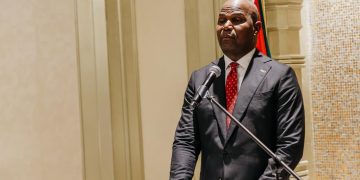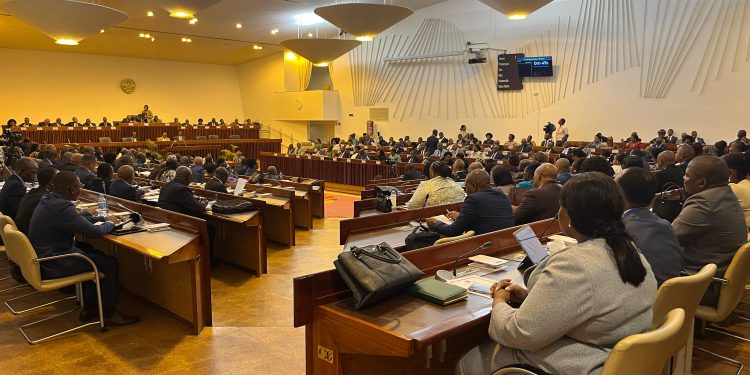- The changes may include a reduction of presidential powers, and reforms to electoral and judicial bodies
By Sheila Nhancale
Maputo (MOZTIMES) – The Mozambican parliament, the Assembly of the Republic, on Wednesday unanimously approved a bill submitted by President Daniel Chapo, which gives the force of law to the "Political Commitment for a National and Inclusive Dialogue", signed on 5 March 2025 by Chapo and the nine political parties represented in the parliament and in the municipal and provincial assemblies.
The commitment, now enshrined into law, aims to establish the principles and guidelines for an inclusive national dialogue focused on constitutional and governance reforms.
Among the proposed reforms is the restructuring of the State, including aspects such as "the political system, the powers of the President of the Republic, the depoliticisation of State institutions, and political, economic and financial decentralisation and deconcentration".
At present, the President of the Republic holds the combined roles of Head of State, Head of Government, and Commander-in-Chief of the Defence and Security Forces, as well as having the exclusive prerogative to appoint the presiding judges of key judicial bodies, including the Supreme Court, the Constitutional Council, and the Administrative Tribunal.
Another central aspect of the reform concerns the judiciary. Mozambique's justice system is widely perceived as overly dependent on the executive, both due to the appointment model and to the Constitutional Council's recurrent tendency to rule in favour of the ruling party in electoral disputes.
In this regard, the proposal foresees a reform of the justice system, including "the mechanism for appointing the heads of judicial bodies and their financial and administrative independence".
Mozambique's electoral procedures are also set to be reviewed. The proposal includes the "definition of a new model, the composition of the electoral administration bodies, electoral legislation, electoral justice bodies, among other aspects that contribute to the integrity of the entire electoral process".
In addition to these reforms, further changes are planned in governance, including adjustments to fiscal policy, modernisation of the public administration, and a review of rules governing the exploitation of natural resources.
The implementation of the commitment will be coordinated by President Chapo, in consultation with the leaders of the signatory parties.
A Technical Commission will also be established, composed of 21 members — 18 to be appointed by the signatory political parties and three by civil society.
The civil society representatives will be selected by consensus, based on nominations from nationally recognised civil society organisations. The Commission will be responsible for proposing working groups, establishing partnerships, supervising activities, and submitting recommendations to the Assembly of the Republic. Its operations will be defined by the President of the Republic in coordination with the signatory parties. (SN)
(Title of text updated on 14 April 2025).





















